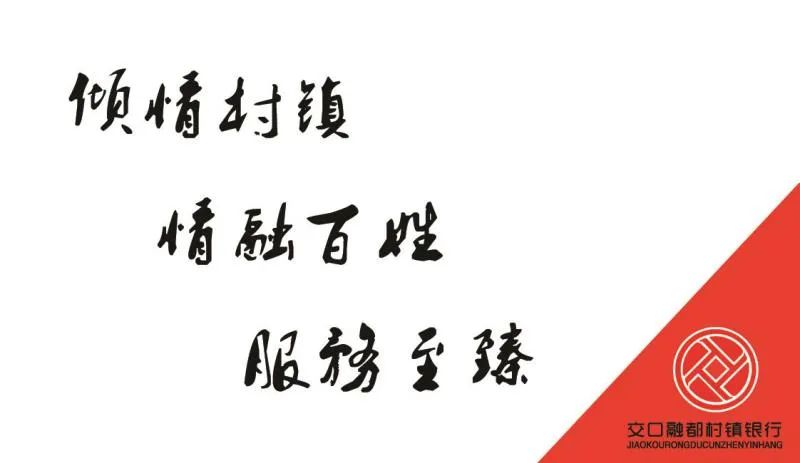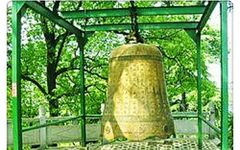
Wenyang County, located in the ancient Wenspring County under the jurisdiction of Shizhou in Hedong Road during the Northern Song Dynasty, was established in the third year of the Tang Dynasty’s Wude era (620 AD). The county seat of Wenspring County is now Wenspring Township in Jiaokou County, where the Northern Wenzhou Prefectural Office was also located. Wenspring County has a long history of 647 years, spanning five periods: Tang, Five Dynasties, Song, Jin, and early Yuan. During the reign of Emperor Taizong of the Northern Song (976-984 AD), it was renamed Wenyang County. Due to its proximity to Xiaoyi County, it was also renamed Zhongyang County, as evidenced by the existing Zhongyang Tower in Xiaoyi, but later reverted to its original name. The existing large iron bell from the Jin Dynasty in Wenspring Township is inscribed with the name of Wenspring County. In the third year of the Yuan Dynasty (1266 AD), Wenspring County was abolished, and its territory was divided among Xiaoyi, Lingshi, and Xixian. Habitually, people refer to Wenspring County as Wenyang County. The Mongol regime brutally suppressed the peasant uprising in Wenyang County, leading to the massacre and burning of the county seat by Yuan soldiers. The culturally significant historical heritage that remains today includes the large iron bell from the Jin Dynasty and the ruins of Chongsheng Temple, Sanqing Temple, and Guandi Temple. Wenyang County has left a deep mark in Chinese history and has also given rise to beautiful myths and legends, one of which is the story of “The Flying Bronze Bell to Beijing”.
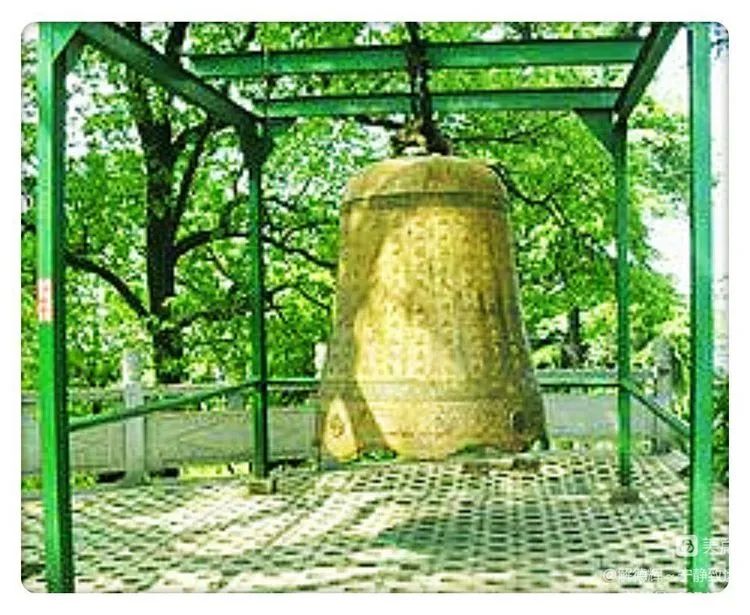
According to historical records, during the Song and Jin dynasties, Wenyang County had two bells, a large bronze bell and a large iron bell, stored on either side of the ancient stage of Chongsheng Temple, which is why Chongsheng Temple is also known as “Bell Temple”. These two bells were cast by a local gentleman from Cuijiazhuang, Mr. Cui, to fulfill a vow after he had a son in his old age. Unfortunately, only the large iron bell remains today, while the other bronze bell mysteriously flew away to Beijing, giving rise to the myth of “The Flying Bronze Bell to Beijing”.
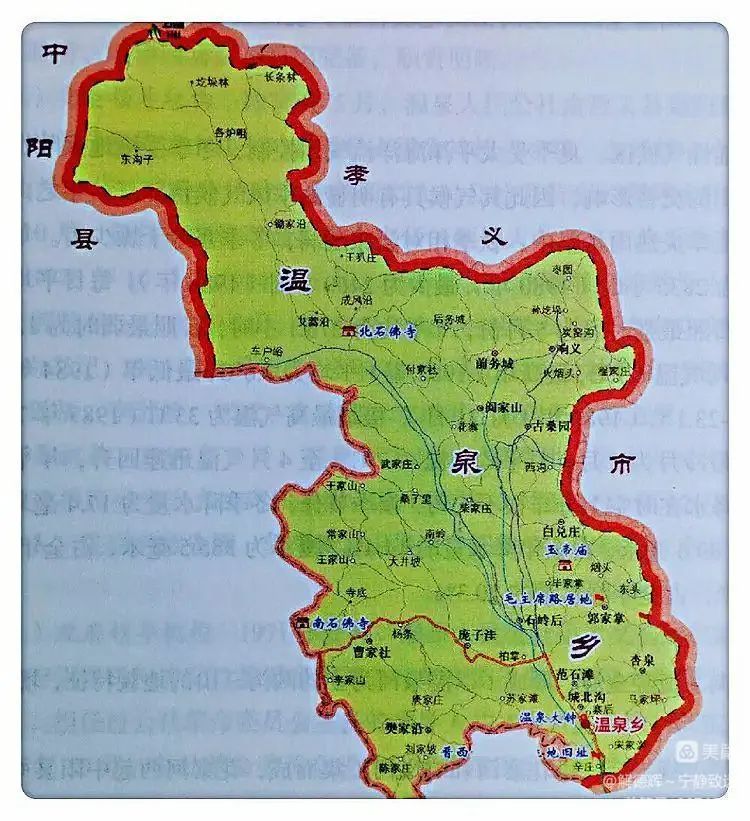
It is said that Mr. Cui from Cuijiazhuang in Wenspring County had a son in his old age, named Cui Wenrui. Wenrui was the left golden boy at the Southern Heavenly Gate, and due to a romantic encounter with the fourth daughter of the Jade Emperor, Zhang Sijie, he angered the Jade Emperor and was banished to the mortal realm, reincarnating in the Cui family, where he later married Cui Wenrui. Zhang Sijie was no ordinary person; she was not only beautiful and intelligent but also skilled in martial arts. She punished bullies, dealt with corrupt officials, and fought against local soldiers, gaining fame in Wenyang County. Later, Sijie and Wenrui became the “Kitchen Gods” worshipped by the people, and the couplet “Heaven speaks of good deeds, returning to the palace brings good fortune” originated from this story. Today, in the place where Zhang Sijie once caused a stir in Wenyang County, there remain the “Huahua Zhai” where she descended, the “Cifang Gou” where she bid farewell to the mortal world, the unchanged village names of Cuijiazhuang and Dongzhuang, the old camp of the General of the Army in Laoyingping, the training ground in Jiaochang Village, and the battlefield at Gaotangban. Despite the numerous wars that have ravaged the area, the once prosperous ancient city of Wenyang, known for its “crystal clear well water and pearl curtains hanging in the building”, has now become a ruin, with only the lonely Chongsheng Temple, Qingzhen Temple, and Laoye Temple remaining. A poem says: “A thousand-year-old flower city turns into a desolate village, striking the great bell by the rootless monument. The sound of the copper and iron echoes, leaving only the Tang moon illuminating the emptiness.”
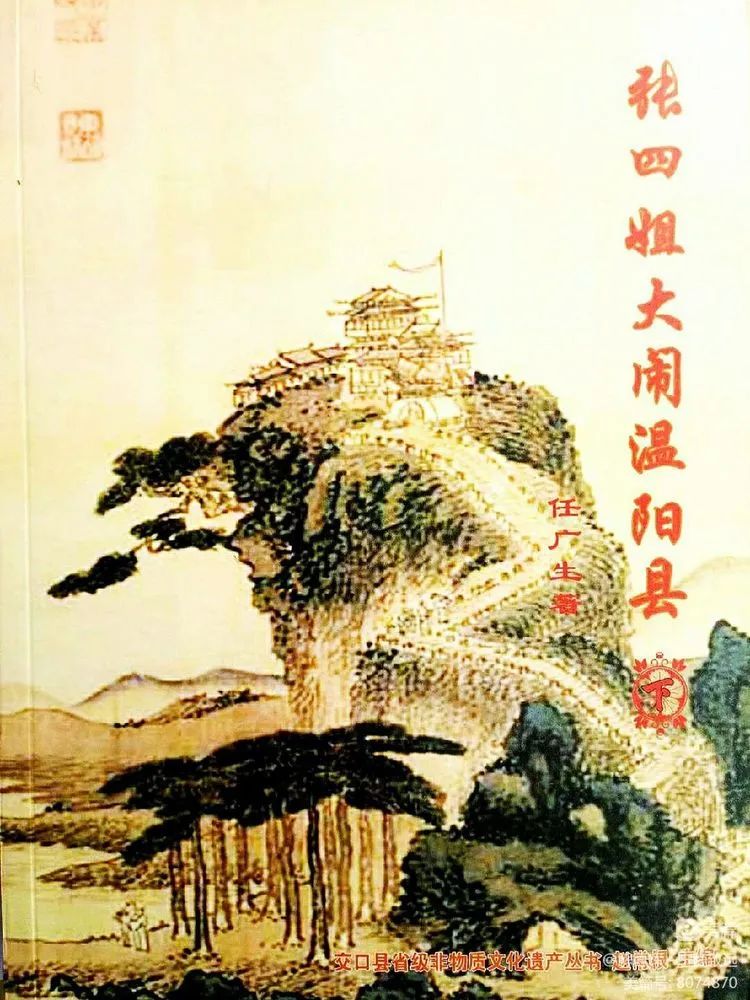
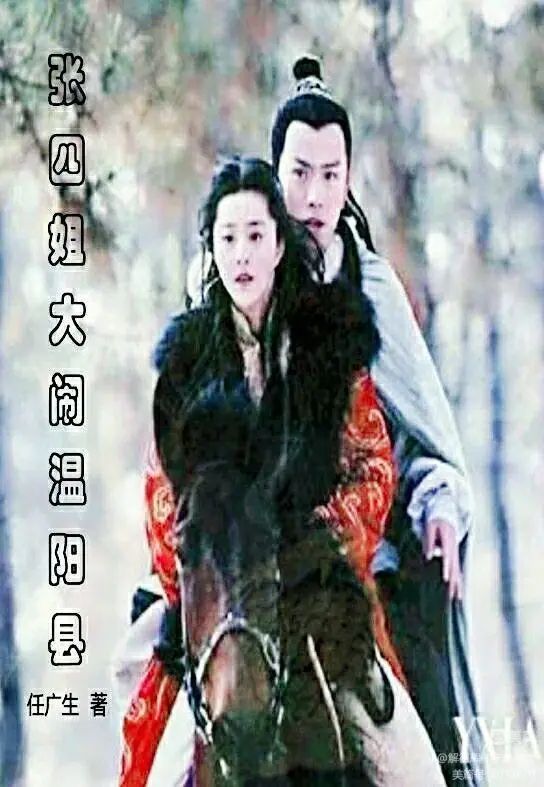
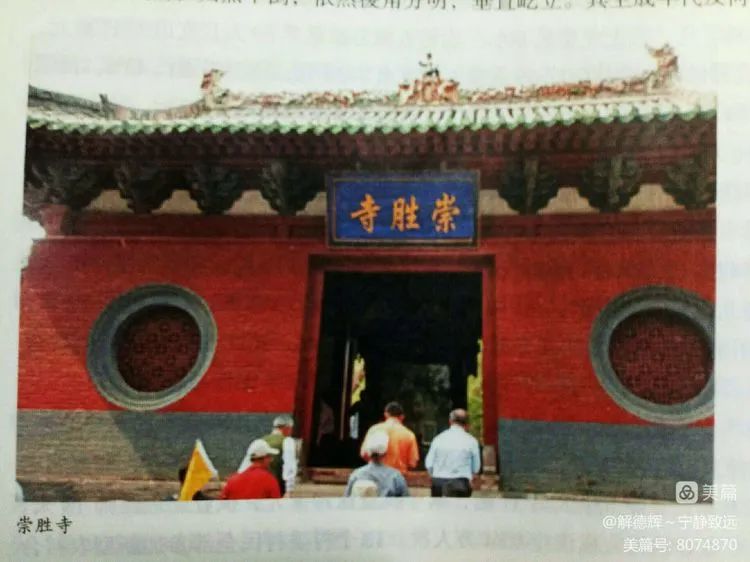
The two large bronze and iron bells of Wenyang County, despite enduring hundreds of years of wind and rain and the essence of a hundred years, have developed a spirit of their own. They often fly up in the quiet of the night, sometimes transforming into two beautiful fairies, known as the “Sisters of Bronze and Iron”, who fly to the ancient hot springs to take a bath. This hot spring bath looks extraordinary, as praised in the poem “Ode to the Hot Spring Bath”:
“The hot spring bath washes away the dust, the clear and fragrant water is precious.”
“Removing dirt and curing ailments, skin as smooth as jade, emerging from the bath, radiance shines on passersby.”
“Fur coats feel cold, the body is worried, a wash can relieve the worries of thousands of households.”
“I ask you, where are you rushing to? Bathing in the hot spring pool through spring and autumn.”
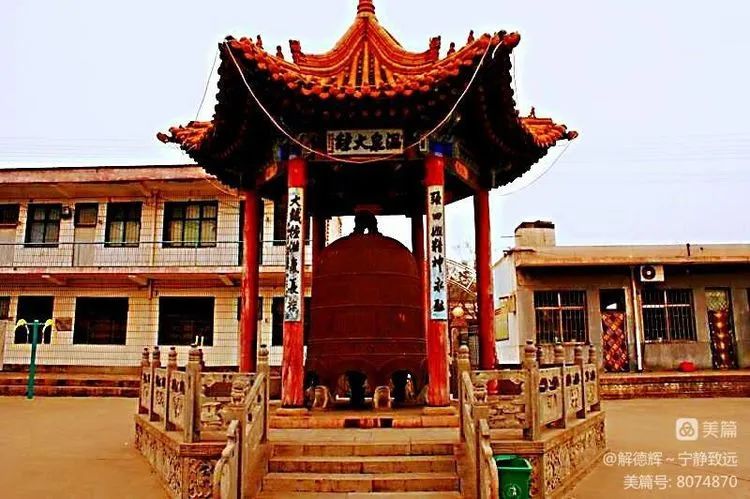
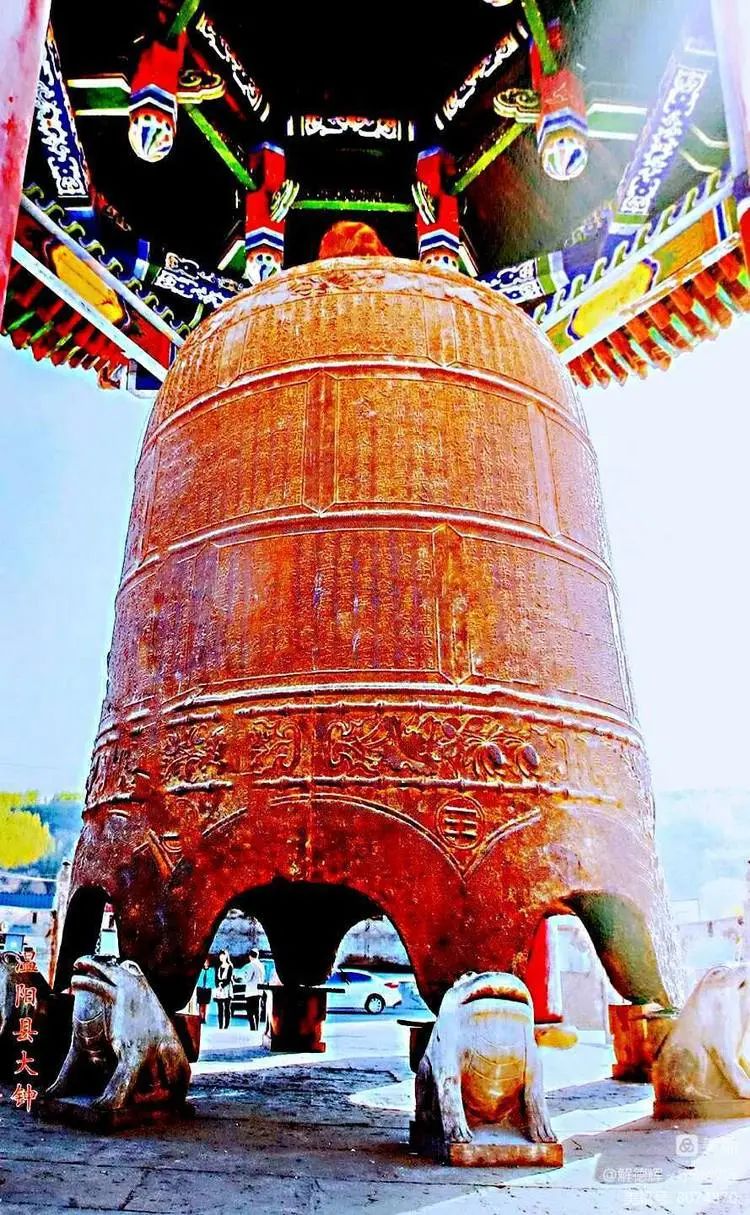

One summer night, as the moon rose and the world was quiet, the Sisters of Bronze and Iron quietly returned to the temple after their bath, only to hear the old monk scolding the little monk again. Iron Sister said to Copper Sister: “Sister, this old monk is really annoying, always scolding this monk or that monk, making it impossible to have peace. What should we do?” Copper Sister replied: “Yes! This old monk is indeed too annoying. Sigh, this place is really too boring; we might as well fly to the capital (modern-day Beijing) for a stroll. It will surely make Iron Sister happy, what do you think?” Iron Sister, hearing this, was overjoyed and said: “Sister, that sounds great! Let’s fly right now!” Copper Sister said: “Don’t be in such a hurry; let’s first have a good sleep, and when dawn breaks, we will set off together!”
As the saying goes: “A good bath leads to sweet dreams”, after the Sisters of Bronze and Iron made up their minds, they each fell into a deep sleep. When the rooster crowed three times, Copper Sister woke up first. She saw Iron Sister still sound asleep and hurriedly called out softly: “Iron Sister, wake up! It’s almost dawn!” However, Iron Sister, who was lost in a beautiful dream, could not be awakened easily. Unbeknownst to her, Iron Sister was dreaming of floating with Copper Sister, flying and flying, having already soared over the Lüliang Mountains, crossed the Taihang Mountains, and leaped over the Fen River, her heart already flying to Beijing.
As dawn began to break, Copper Sister hurriedly called again: “Iron Sister, Iron Sister, wake up quickly! The east is already bright!” At this moment, Iron Sister finally woke from her beautiful dream. Copper Sister then saw the light suddenly turn on in the little monk’s room. Alarmed, she said to Iron Sister: “Quick, quick, fly!” Without a second thought, Copper Sister flew up first. Seeing this, Iron Sister quickly followed suit and flew up as well. At that moment, they heard the wooden door of the monk’s room creak open, and two monks came out with brooms. They felt the wind on their faces and heard the sound in their ears, so they perked up their ears and looked around. Suddenly, the tall monk exclaimed: “Junior Brother, come and see! How did the two bronze and iron bells fly up?” The short monk was startled at first but then raised his broom and shouted: “Quick, hit it!” He ran over and started to strike at them. Just as he was about to do so, the tall monk quickly followed. They watched as the bronze bell flew higher, and the tall monk jumped several times with all his might, but it was of no use. They witnessed the bronze bell first fly up and then out of the temple, about to disappear into the sky. At that moment, the tall monk ran over, jumped, and struck the large iron bell with his broom, resulting in a loud “boom” as the iron bell fell more than a foot. The short monk leaped up and struck again, and the iron bell made another loud “boom”. At this point, the monks in the temple, including the senior and junior monks, and the two bald monks, all swung their brooms together and struck the iron bell with all their might. As a result, the large iron bell fell from a height of over ten feet, crashing onto a huge stone monument on the right side of the stage. The stone monument shattered, and the turtle head fell off. The violent collision of iron and stone produced a deafening sound, mixed with a sharp, piercing noise, shaking the entire temple. The startled monks rushed out, and everyone gathered around the large iron bell to examine it closely, only to see a dark crack opening from the bottom to the top of the bell.
It turned out that the reason the tall and short monks woke up early that day was due to the old monk’s scolding the night before, as there was a ritual that required early cleaning; otherwise, they would be severely punished for delaying the ceremony. So, these two monks woke up at the crow of the rooster, lit the lamps, and took their brooms outside, just in time to witness the two large bronze and iron bells flying up. It can be said: “Being early is not as good as being timely.” After the large iron bell was struck down, its body cracked, and its spirit was lost, never to fly again. It remained in the ancient temple of the old county until now.
Meanwhile, Copper Sister, having flown out of the temple into the high sky, did not see Iron Sister flying after her, so she immediately flew back to the temple to find out what was going on. Disliking the monks, she did not want to land again, and reluctantly flew northward alone. Copper Sister flew out of the Daughter’s Pass and into Beijing. By this time, the sky was bright. The bustling and lively Beijing dazzled Copper Sister, making her feel as if she were Liu Laolao entering the Grand View Garden. She saw: the palaces towering, a scene of gold and brilliance; the mansions lined up, a display of luxury; merchants from all directions converging, goods from all over gathering; in Wangfujing, treasures glimmering, noble ladies competing in wealth; outside the city gate, fire-breathing dragons, rich and poor making a living. The sound of the sedan chair swaying on the bridge, official sedan chairs and flower sedan chairs, four bearers quickly passing through the streets; eight bearers slowly, with gongs announcing their way. The boats swaying under the bridge, official boats and flower boats, four oars leisurely; eight oars quickly, the transport order urgent. Bloodshed, who died at Caishikou? Fragrant, who goes to the feast of fine wine? The sound of pipa rises, the beautiful women like clouds, who is the most beautiful? Among the flowers, the butterflies, which family belongs to the fairyland? Look at the military officials in sedan chairs, moving to the inner court. Crowds of people, old Beijing stepping out of the courtyard: bright lights and wine, the groom entering Wanchun Tower. Indeed, it is: countless splendid scenes that cannot be exhausted, infinite beauty in the imperial capital.
At this moment, Copper Sister was leisurely flying above the imperial capital, happily admiring the sights. As she flew and flew, she unknowingly reached the western suburbs of Beijing. At this time, Copper Sister caught a whiff of a familiar scent and looked down to see a temple: the bell tower and pagoda reaching up to the clouds. The golden bells at the corners of the hall jingled in the wind. The towering pines and cypresses were surrounded by fragrant mist. Groups of cranes flew, and the Buddha statues shone in gold. She also saw the monks inside the temple performing rituals, with the old monk having a kind face, completely unlike the fierce old monk from Wenspring’s Chongsheng Temple. Copper Sister watched and watched, and could not help but float down, as if a fairy descending into the temple.
It turned out that the temple Copper Sister arrived at was the famous Huayan Temple in the western suburbs of Beijing. The day Copper Sister arrived was the 19th day of the 6th month in the 12th year of the Yongle reign of the Ming Dynasty, when the monks of Huayan Temple were holding a ceremony to celebrate the day of Guanyin Bodhisattva’s enlightenment. The attending monks saw a large bronze bell descending from the sky and hurriedly reported it to the abbot. The abbot, who had just finished the ritual, heard the report of this strange occurrence and immediately led the monks to come and see. In an instant, hundreds of monks gathered in the temple courtyard, bowing and clasping their hands, chanting Amitabha. Copper Sister felt a bit shy and let out a sound, slowly spinning in the air, just as she was about to fly away, the abbot, seeing the large bronze bell about to fly off, hurriedly took off his red cassock, recited Buddhist verses, and gently threw the cassock up. The cassock flew up, radiating thousands of golden rays, and Copper Sister could no longer fly away. The attending monks then brought a large iron chain and secured the bronze bell to a thousand-year-old pine tree in the temple. The abbot then put away the cassock and took out a red brush to write the character “安” (peace) on the bell, causing the bell’s sound to cease. This is indeed: “Seeing the way, kind and gentle, who knows the means are ruthless? No wonder people scold the monk for being neither ruthless nor bald!”
The next day, Emperor Yongle of the Ming Dynasty, upon hearing of this matter, immediately visited the temple to see it. The officials accompanying him reported: “Long live the emperor, a great blessing, heaven has sent auspiciousness. This bell is two zhang and two chi five cun tall, weighing forty-six thousand five hundred jin. The inside and outside of the bell are cast with scriptures, totaling two hundred and twenty-five thousand characters, truly the first bell in the world.” Upon hearing this, the emperor was greatly pleased and immediately named it the “Huayan Bell”. He decreed the expansion of the temple and ordered the Ministry of Works to construct a hundred-zhang bell tower within the temple. After completion, a lucky day was chosen to hang the large bell. The civil and military officials all called out long live and thanked the emperor for his grace. After the expansion of Huayan Temple was completed, the hundred-zhang bell tower was also built. In October, on an auspicious day, the emperor and civil and military officials once again visited the temple to preside over the bell-hanging ceremony. When the auspicious time arrived, the ceremonial officer announced loudly: “The emperor has decreed, please return the Huayan Bell to its place!” As soon as the words fell, the salute sounded, and amidst the celestial music, the monks began to chant the “Huayan Sutra”. The flag was waved, and four hundred sixty-five strong men pulled the iron chain together, slowly raising the bronze bell. The bell was soon hung up, and after the large bronze bell was hung, Emperor Yongle, surrounded by dozens of palace maids, gently stepped onto the bell tower and personally pulled the large red wooden mallet to strike the first sound. The bell roared, and its loud and clear sound echoed throughout Beijing: “How fortunate is the bronze bell to be the first bell? The bell keeper is truly the son of heaven, should thank the cassock monk!”
At this moment, the bronze bell was filled with joy, grateful to the kind and gentle old monk, and decided to stay in the temple. That day, Emperor Yongle personally inscribed the plaque with the words “大钟寺” (Bell Temple) in shining gold, powerful and vigorous. From then on, the large bronze bell from Wenspring was hung here, and Huayan Temple in the western suburbs of Beijing was renamed “Bell Temple”.
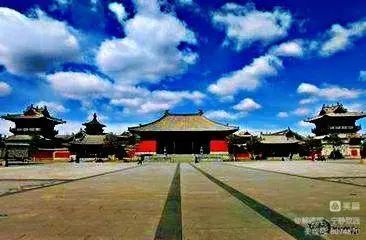
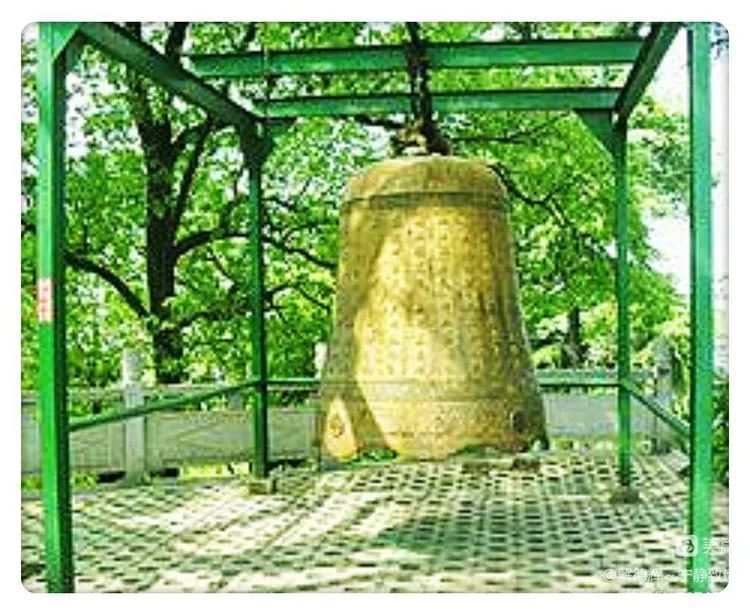
It is said that since the Ming Dynasty, people have noticed the deep and resonant sound of the large bronze bell, which, when struck, emits the sound of “Wenyang, Wenyang” that can be heard far beyond the outskirts of Beijing. For many years, whenever people mention Wenspring, they refer to it as “Wenyang County” or “Wencun County”. Apart from the stone monument, large bell, and records in the annals stating the name “Wenspring County”, no local person has ever called it “Wenspring County”. The bell, like the locals, resonates with the sound of “Wenyang—”, and when you stand beside the large iron bell in Wenyang County, you can almost hear the large bronze bell echoing from Beijing: “Wenyang—Wenyang—” This is the bronze bell’s remembrance of the past, longing for the sound of the iron bell, and a reflection of the bronze bell’s nostalgia for its hometown, wishing to return to its roots: flying out of a small county to meet the true dragon, hanging on a high building to receive the emperor’s seal. Although it is said that the prominent and noble are ultimately outsiders, the feelings are tied to Wenyang, wishing to return to the clan.
【References: The main references for this article include:
1. “Jiaokou County Chronicle”;
2. “Xizhou Chronicle”;
3. “Baihe Ce” (also known as “Guiguzi”);
4. “Lüliang City Township Chronicle” (Volume II – Jiaokou County Volume);
5. “Fangzhi Shanxi”;
6. “Lüliang District Chronicle”;
7. “Myths and Legends and Folklore” (compiled by Xie Congzheng);
8. “Zhang Sijie Causes a Stir in Wenyang County” Volumes I and II (written by Ren Guangsheng);
9. Various online introductions about Wenyang County and the bronze bell.
——————–
New Media Editor: Cai Zhuo
New Media Supervisor: Qin Jinwen

Previous Issues
Xi Jinping: Deepen the Study of Chinese Civilization History to Enhance Historical Consciousness and Cultural Confidence
[News] The County People’s Government Holds a Meeting to Discuss Safety Production, Flood Prevention, and Other Work
[Flood Prevention] County Mayor Li Gang Inspects Flood Prevention Work in Kangcheng Town
[News] Kangcheng Town Holds the Second Meeting of the Twelfth People’s Congress, Guo Jianqiang Elected as the Town Mayor of Kangcheng Town
[Promoting the Change of Customs and Promoting New Trends of the Times] Chafang Village: “Red and White Council” “Leads to New Trends of Customs”
